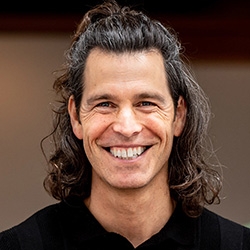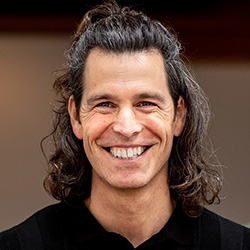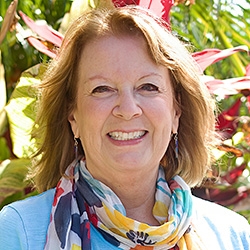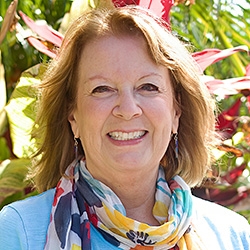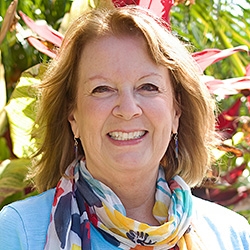
Search Results: values
-
- Discover how to figure out what you really want, then how to ask for it
- Learn how to make requests with ease and how to guess the requests of others
- Practice strategies for turning ‘demand energy’ into ‘request energy’
- Be able to stand firmly for your needs and assertively ask for what you want
-
Come. Let us journey together into our own authentic Life force: the essential living energy that permeates all of our lives.
Your journey will begin at the center: with the divine / life force, or soul force.
Robert Gonzales shares how this fundamental life energy is the tender expression of your inner being, or soul. It unfolds through the heart as your deepest longings, which manifest themselves in all forms of human needs and values. When you live from the energies of compassion, creativity, love, and clarity – while remaining wholly grounded and aware of needs and values – then you are living your passion… You are living the Self-In-Life.
-
- Discover what is yours to do in response to our growing global crises
- Weave nonviolence more deeply into how you live and lead
- Receive ongoing support within and beyond the course in how to be effective and alive while doing what’s yours to do
- Increase your capacity to face and mourn current reality as a source of greater choice and energy
- Be a part of transforming the legacy of scarcity, separation, and powerlessness into a livable future
-
Conflict is a normal and natural part of life. To varying degrees, it happens whenever two or more people consistently spend time together. Resolving conflict effectively and peacefully, in a way in which all parties feel respected and valued, does not feel natural for those of us who grew up with punitive, adversarial, or avoidant approaches to conflict. Eric offers some tips for approaching conflict.
-
- Discern what is preventing your communication style from being effective
- Create a communication style that works
- Resolve everyday conflicts and misunderstandings
- Create a deeper sense of connection, trust, and cooperation
- Heal old wounds between you and others, as well as within yourself
- Be the leader and contributor you want to be in any situation
-
Giving feedback can be a difficult task, sometimes we try to avoid getting to the point and instead end up spending a long time attempting to communicate. We find there are mostly two types of feedback. The first focuses on what is wrong with the person's behaviour and tends to feel more judgemental whereas the second is values-based feedback, focusing on the needs of the people involved.
-
Trainer Tip: Sometimes the best way to get our need me is to first connect with the needs of another.
-
-
Ronnie Hausheer, an NVC facilitator who volunteers her time for OccupyVoice.info joins NVC Academy co-founder Mark Schultz in a discussion of her work sharing empathy, NVC training and mediation with members of the Occupy Movement.
-
Trainer tip: When we focus on needs further possibilities are more likely to open up. When we focus on a particular strategy, our world can feel scarce and conflicts can arise. Resolution comes when we value everyone’s needs and seek mutually satisfying solutions. We can ask for support towards this outcome.
-
Trainer Tip: Punitive use of force stems from a belief that people behave in certain ways because they're bad, and that they need to be punished to mend their ways. One way to punish is to judge them. In contrast, protective use of force stems from a desire to prevent injury or injustice. It focuses on protecting people’s rights and well-being, not judging their behavior.
-
Read how an American Buddhist NVC teacher with Jewish roots reflects on how any dehumanization in the Israel-Hamas conflict can be used to justify all kinds of violence that can escalate for generations. With acknowledgment of the complexities, his desire is for us to bring in respect, dignity and peace -- for both Israelis and Palestinians. He emphasizes compassionate advocacy of all humanity amid the ongoing crisis.
-
Trainer Tip: Mary offers 3 foundational tips for making requests: positivity, specificity and doability.
-
In a workshop, a hesitant white neurodivergent man faced a triggering reaction from a Global Majority transgender man. Uncovering their backgrounds, the facilitator addressed family dynamics and exclusion. A repair exercise fostered empathy, challenging assumptions and emphasizing the importance of equitable facilitation for a richer group experience.
-
This 5-session telecourse recording is designed to support you in learning what makes giving and receiving feedback challenging and how you can turn these experiences into opportunities for learning, connection, and effective functioning.
-
We can see anger as an alarm or signal that can inform us that unmet needs require attention, or that we hold judgements. We can shift our own anger in several healthy ways: get present, identify the stimulus and any judgements or unmet needs, look for ways to meet our needs, make requests that support our needs, express our needs to ourselves and appropriate others, and more.
-
Listen and learn how to:
- Talk about NVC in a way that has meaning and relevance for companies and organizations, showing a clear ROI (return on investment).
- Draw on different applications of NVC for the workplace: addressing change in management, management issues / styles, morale / teamwork, employee retention, etc.
- Create a value-based training proposal (with different service and product options) based on the needs of each specific client.
- Structure meetings with potential clients to move agreements forward.
- Custom design any materials, activities and languaging for each client.
- Develop your own marketing materials to increase your outreach and build your business of sharing NVC
-
There's a danger in using empathy exchange to perpetually recirculate and exchange pain (often by telling and re-telling the same old stories), rather than using it as a catalyst for transformation. It can create and further pain in whatever form: anger, destructiveness, hatred, grief, emotional drama, and violence. It can also reinforce dualistic evaluations of "met" vs "unmet" needs. And it can slow down productivity.
-
Ask the Trainer: "I just started teaching in a public school and I'm not enjoying the violence that teachers express towards children and their colleagues. However, when I talk about NVC, most people listen but I feel they're either not understanding it or ..."
-
John Kinyon leads participants through two Observation Exercises to strengthen their ability to be present. Through the exercises, John distinguishes the difference between feelings, which are emotions felt inside the body, and observations which are witness to our experience.

